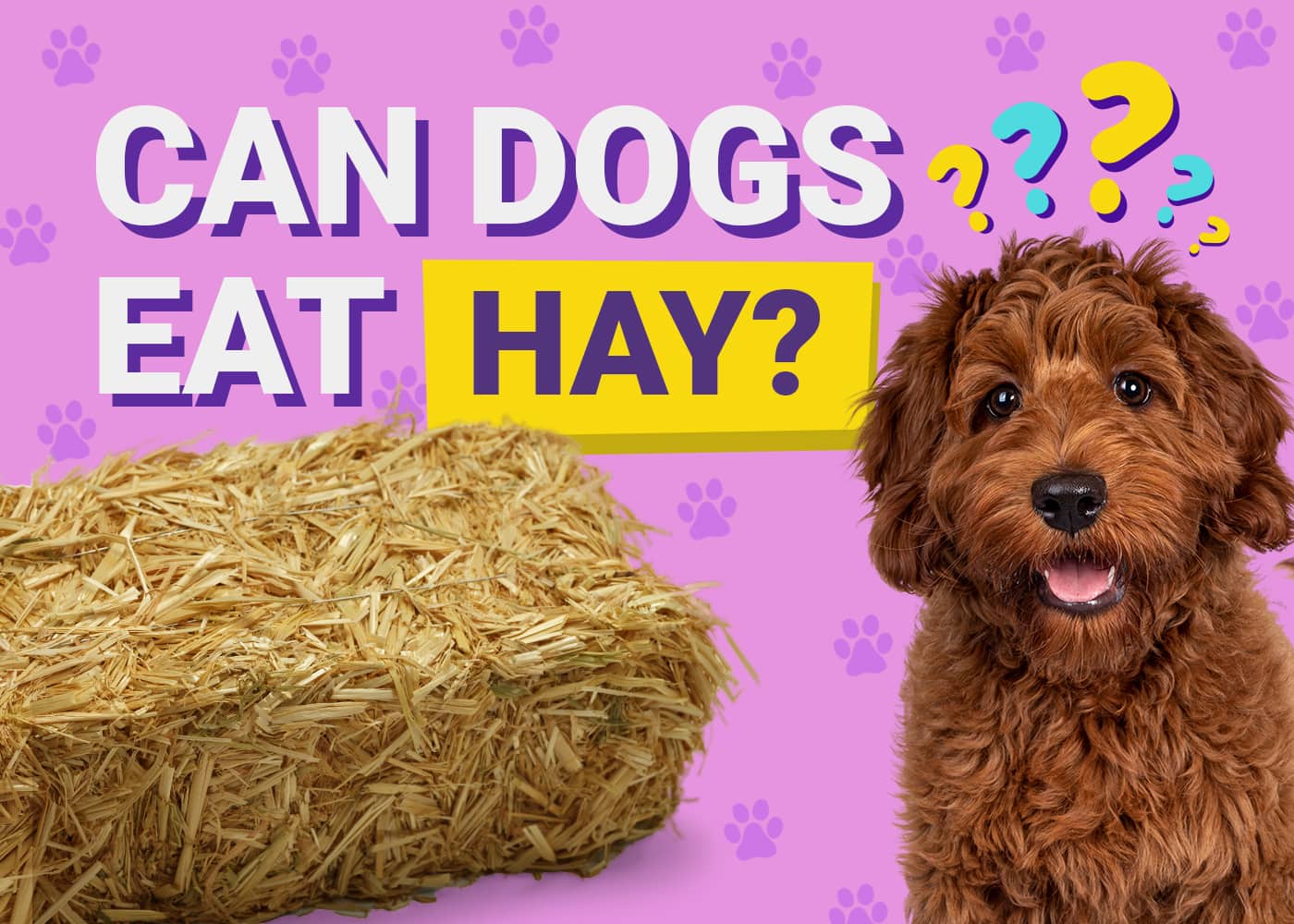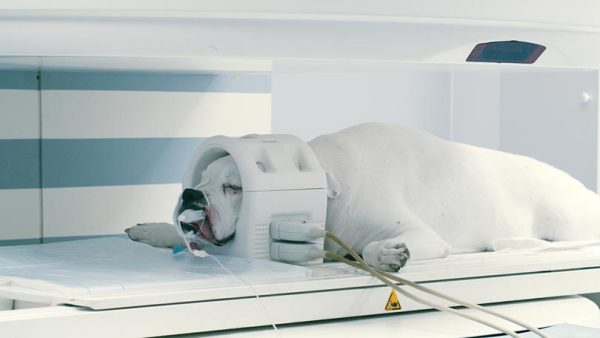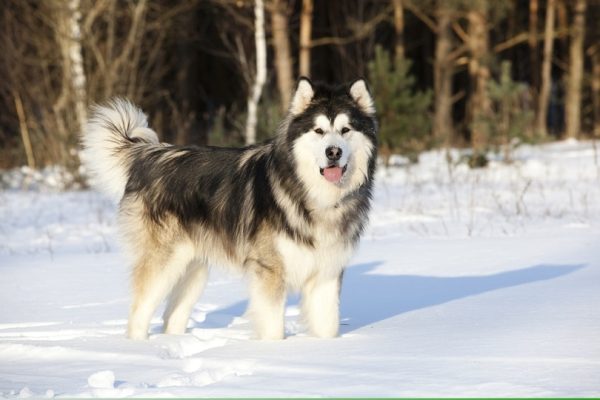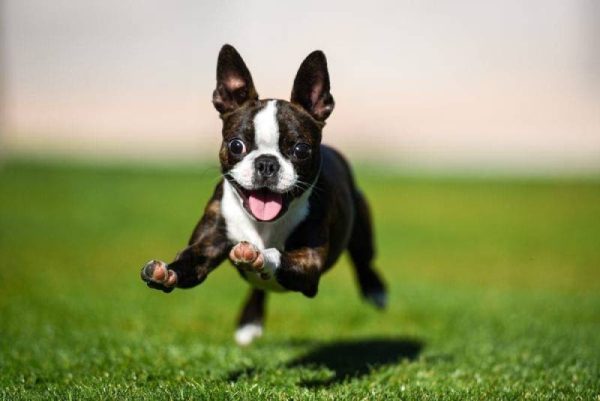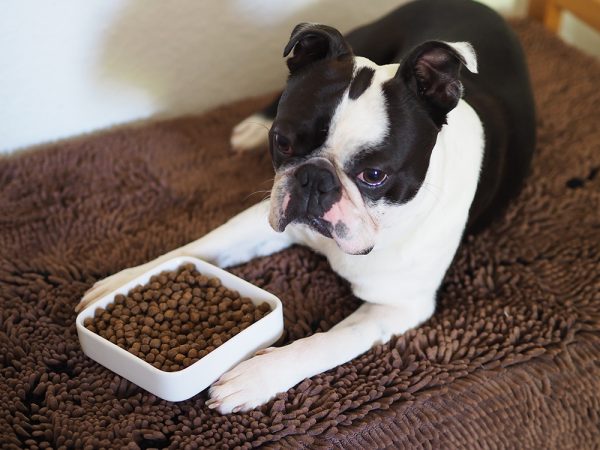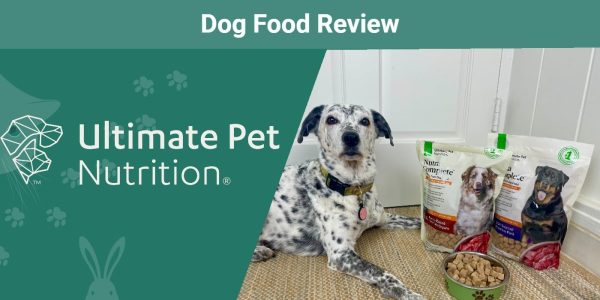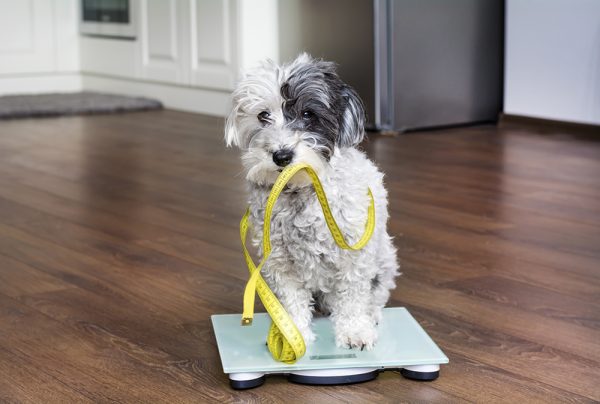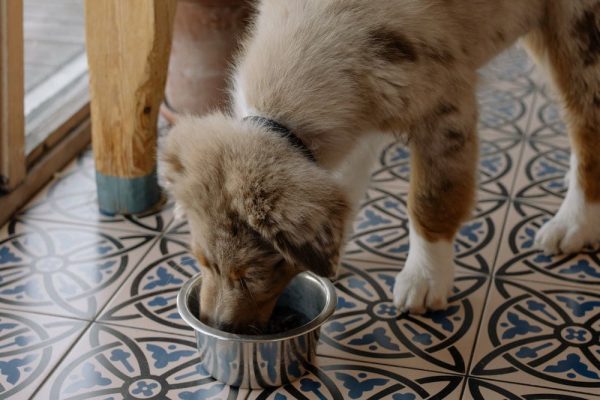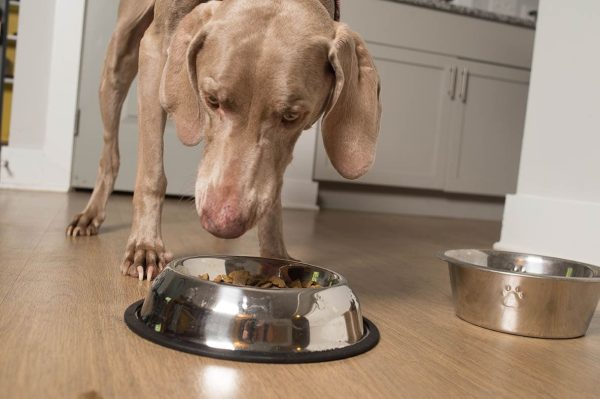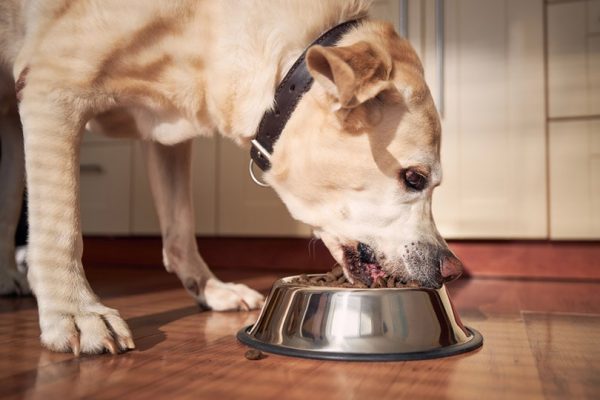In this article
View 3 More +Hay is used as animal feed. However, that doesn’t make it a good choice for your dog. Many dogs will naturally eat a small amount of grass for differing reasons. Therefore, it isn’t odd for them to try a bite of hay or two out of curiosity. A small amount of hay likely won’t hurt many dogs; however, we don’t recommend feeding your dog hay on purpose.
A larger amount of hay can cause intestinal problems. Dogs aren’t designed to eat hay and cannot break it down. The hay will pass through their intestines undigested, not providing any nutrients (hay is practically all fiber.) In many cases, this happens without any complications. If your dog consumes a large amount of hay, it can cause a blockage.
If it becomes stuck, an intestinal blockage can occur. This complication is potentially deadly and will require surgery in many cases. With a blocked intestine, dogs will quickly become unwell and need veterinary attention.
Because it provides no nutrients and cannot be broken down, hay would easily fall into the “foreign body” category—not the “food” category. It isn’t edible for dogs, though eating a mouthful won’t usually harm your pup.

Signs Your Dog Ate Too Much Hay
Of course, the answer to “how much hay is too much for a dog” varies. A Chihuahua can eat a much smaller amount than a Great Dane. It depends on the size of the dog, as well as their age and whether or not they have any underlying conditions. How much hay your dog can safely eat may vary across their lifespan, too. We recommend contacting your veterinarian if your dog is eating hay.
If your dogs consume too much hay, they will likely show a few clinical signs. Most will experience intestinal upset, including vomiting and diarrhea. Unproductive vomiting is particularly distressing since it means your dog cannot vomit out whatever makes them sick. Straining to defecate without producing anything is another distressing sign for the same reason. Either sign should prompt you to contact your veterinarian.
Some dogs experience abdominal pain. They may whimper when picked up or not want belly rubs like normal. Many dogs experience behavioral changes when in pain or distress. Therefore, biting and growling may occur, or they may hide away to rest.
If you need to speak with a vet but can't get to one, head over to PangoVet. It's our online service where you can talk to a vet online and get the advice you need for your pet — all at an affordable price!
Diagnosing an Obstruction Due to Hay Consumption
If your dog eats hay and displays any of the previous signs, you should take them to the vet immediately. At the vet, several tests may need to be performed. Usually, there is a physical examination, and the vet will then advise if further testing or treatment is needed.
If an obstruction is suspected, an X-ray or ultrasound may be performed. Your vet may perform several X-rays with different contrast materials to see the obstruction on the X-ray. Once the obstruction is detected, your vet can make a plan to remove it. They may also recommend blood and urine tests to check your dog’s health. Several health issues have similar signs to obstructions, and they will often need to be ruled out.
Treating a Hay Obstruction
If your dog eats so much hay that an obstruction occurs, exploratory surgery is usually required. Often, this surgery must be performed relatively quickly. Some obstructions can cut off the blood supply of the surrounding tissue, leading to necrosis. Necrosis can be deadly and is one of the more severe complications your dog may experience after eating hay. Luckily, fast action can prevent this condition from occurring.
If surgery is not needed, your pet may need to be hospitalized for observation, and more X-rays may be taken to track the progress of the blockage. Your vet may also treat your pet’s signs with medication and intravenous fluids.
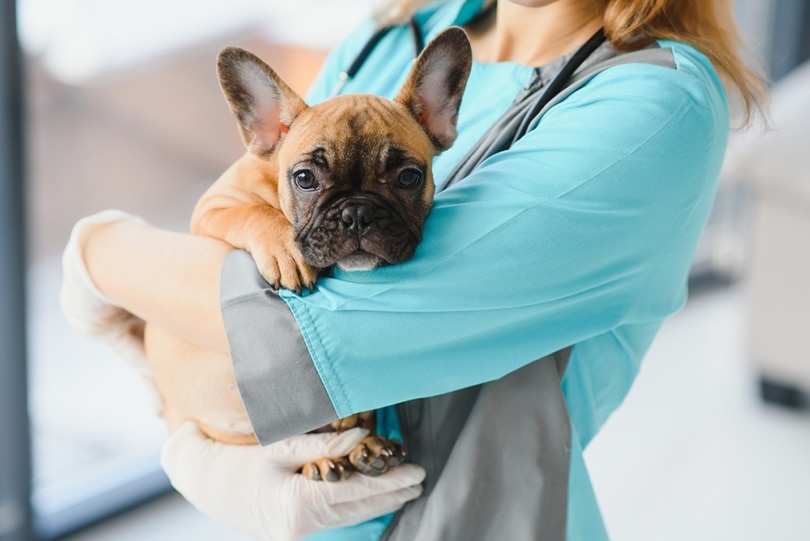
Will My Dog Be Okay If He Eats Hay?
Most dogs that eat hay will be fine, with minimal to no clinical signs. Only dogs that consume enough hay to create a blockage may have complications. These dogs require veterinary treatment fairly quickly to prevent problems.
The prognosis of the obstruction varies widely, but the location and duration play a significant role. Therefore, you want to get your dog to the vet right away. Preferably, the obstruction needs to be treated before any complications arise.

Conclusion
If your dog consumes a small amount of hay, they will likely be fine. Hay isn’t toxic and can be passed through a dog’s digestive system without any issue. However, problems arise if your dog consumes too much hay. In those cases, the hay may block the intestines and cannot pass through. When this occurs, veterinary care is necessary. The obstruction often needs to be removed through surgery.
Hay provides no nutrition to canines, but it can fill them up. They are not designed to digest hay, so it simply passes through their digestive system undigested. If your dog regularly eats hay, it may lead to nutritional issues, as they may not consume enough regular food.
We don’t recommend encouraging your dog to eat any amount of hay. However, if they accidentally eat a small amount, they will likely be fine unless they exhibit clinical signs. In that case, we recommend taking them to the vet.
See also:
